Last week the Coordinating Board for Higher Education (CBHE) met. I attended the meeting and advocated for Missouri State University on important issues impacting our operations.
Plan removes barriers
The board approved the Missouri Department of Higher Education and Workforce Development (MDHEWD) strategic plan.
This plan will guide initiatives and priorities in Missouri for the next three to five years. It outlines a comprehensive plan for education, training, and the public workforce system to encourage economic growth and personal success among Missourians.
The plan lays out strategies for access, success and affordability of higher education. It highlights objectives designed to remove barriers to enrollment and employment, holistically support learners and workers, identify resources and create opportunities.
We have already communicated with MDHEWD staff about how we can partner on various initiatives set forth in the plan.
I would encourage all of our faculty and staff to review the strategic plan and email me any thoughts or ideas you have for ways we can do our part to propel the State of Missouri forward on the pathway laid out in the plan.
Adding a new doctoral program
The board also unanimously approved MSU’s proposal for a Doctor of Occupational Therapy degree program.
We have had a graduate program in occupational therapy since 2015. By approving our proposal, the coordinating board has authorized us to add a doctoral degree program to supplement our current master’s degree program in occupational therapy.
Mission change will speed up review processes
Finally, the coordinating board unanimously approved a change to MSU’s CBHE-approved mission description.
MDHEWD’s academic program approval process sorts program proposals based on a university’s mission description. Programs that fall within a university’s CBHE-approved mission description undergo a shorter, less intensive “routine review” process.
Programs that fall outside a university’s CBHE-approved mission description undergo a much longer, more onerous “comprehensive review” process.
MSU’s CBHE-approved mission description did not include professional doctorates. Rather, the mission description listed specific professional doctorates that MSU could offer. The result was that each time MSU offered a new professional doctoral program, it had to undergo a “comprehensive review” process, delaying the start of the program and creating a substantial administrative burden.
MSU requested that the CBHE change the university’s mission description to include professional doctorates generally. By approving this change, the CBHE has authorized MSU’s future professional doctorate programs to undergo a “routine review.” This will be a much quicker, less burdensome process.
This was a controversial decision that some higher education stakeholders in the state opposed. I greatly appreciate the leadership of Commissioner Zora Mulligan and the Coordinating Board of Higher Education in approving our proposal.
Thanks for all you do for Missouri State!


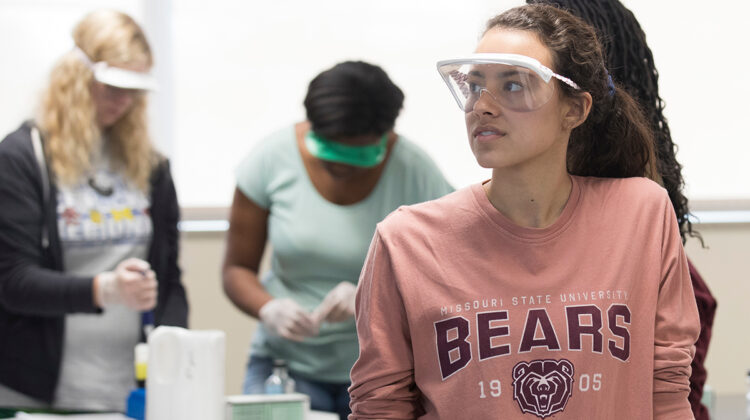

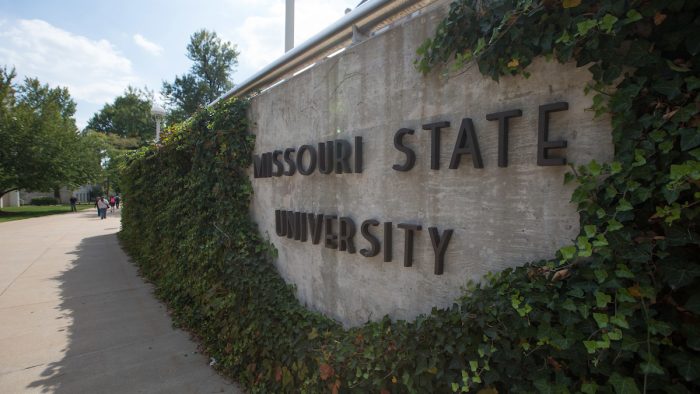


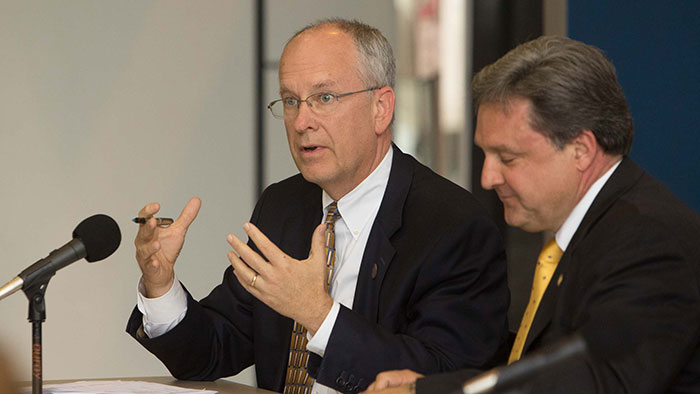

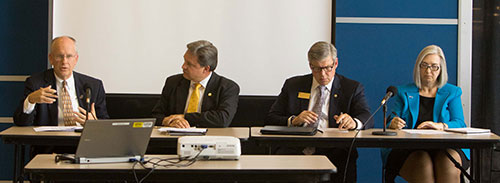 The Missouri Department of Higher Education (MDHE) is developing a new coordinated plan for Missouri higher education titled “Preparing Missourians to Succeed: A Blueprint for Higher Education.” By 2018, an estimated 60 percent of all jobs in the state will require some form of postsecondary education. Currently, about 49 percent of Missourians have a college degree or certificate. Through its coordinated planning process, MDHE is developing a strategy to make progress toward closing this gap.
The Missouri Department of Higher Education (MDHE) is developing a new coordinated plan for Missouri higher education titled “Preparing Missourians to Succeed: A Blueprint for Higher Education.” By 2018, an estimated 60 percent of all jobs in the state will require some form of postsecondary education. Currently, about 49 percent of Missourians have a college degree or certificate. Through its coordinated planning process, MDHE is developing a strategy to make progress toward closing this gap.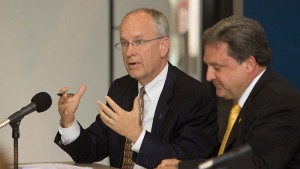 Smart testifies at public hearing
Smart testifies at public hearing